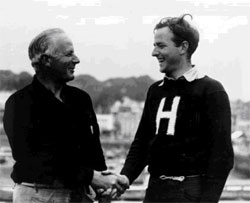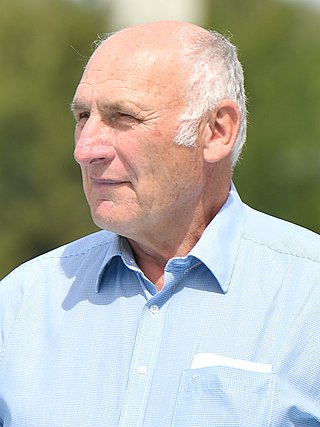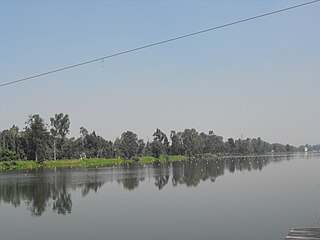Richard John Joyce is a former New Zealand rower who won two Olympic gold medals during his career.

Dudley Leonard Storey was a New Zealand rower who won two Olympic medals.

Ross Hounsell Collinge is a former New Zealand rower who won two Olympic medals.
Warren Joseph Cole was a New Zealand rower who won an Olympic gold medal at the 1968 Summer Olympics in Mexico City.
Simon Charles Dickie was a New Zealand rowing cox who won three Olympic medals.

Paul Hurlburt Smart was an American sailor and Olympic champion. He competed at the 1948 Summer Olympics in London, where he received a gold medal in the star class with the boat Hilarius, together with his son Hilary Smart.
Charles Livingston Grimes was an American competition rower and Olympic champion.

Malcolm Howard is a Canadian rower. He was born in Victoria, British Columbia and graduated from Brentwood College School in 2001. While at Brentwood he joined Canada's junior national team.
Paul Hoffman is an American coxswain who competed in the 1968 Summer Olympics and in the 1972 Summer Olympics.

Igor Aleksandrovich Rudakov is a Russian former coxswain who competed for the Soviet Union in the 1960, 1964, 1968, and in the 1972 Summer Olympics.

Hans-Johann Färber is a German rower who competed for West Germany in the 1968 Summer Olympics, 1972 Summer Olympics and in the 1976 Summer Olympics.
Lawrence ("Monk") Terry Jr. is an American rower who competed in the 1968 Summer Olympics and in the 1972 Summer Olympics, winning a silver medal in the 1972 men's eights event.
Franklin Warren "Fritz" Hobbs, IV is an American rower who competed in the 1968 Summer Olympics and in the 1972 Summer Olympics.
Peter Harlow Raymond is a beekeeper, and an American former rower who competed in the 1968 Summer Olympics and in the 1972 Summer Olympics. He was born in Princeton, New Jersey and attended South Kent School and Princeton University.

William Barton Rogers Hobbs was an American rower who competed in the 1968 and 1972 Summer Olympics. He was born in Ponce, Puerto Rico and is the younger brother of Franklin Hobbs. In 1968 he stroked the American coxed pair which finished fifth in the Rowing at the 1968 Summer Olympics in Mexico. In 1970 he competed on the Dating Game for a date with Karen Carpenter. Two years later he rowed #3 in the American eight that won a silver medal in the 1972 Munich Olympics. He graduated from Harvard College and Harvard Business School.
Michael Kent Livingston is an American rower who competed in the 1972 Summer Olympics.
Otakar Mareček was a Czech rower who competed for Czechoslovakia in the 1968 Summer Olympics, in the 1972 Summer Olympics, and in the 1976 Summer Olympics.
Vladimír Jánoš is a Czech rower who competed for Czechoslovakia in the 1968 Summer Olympics, in the 1972 Summer Olympics, and in the 1976 Summer Olympics.

The men's eight competition at the 1968 Summer Olympics took place at Virgilio Uribe Rowing and Canoeing Course, Mexico City, Mexico. It was held from 13 to 19 October and was won by the team from West Germany, with the teams from Australia and the Soviet Union claiming silver and bronze respectively. It was West Germany's first appearance as a separate nation, though the United Team of Germany had won gold in 1960 and silver in 1964, with West Germans making up those teams. The silver medal was Australia's best result yet in the event; the nation had previously taken bronze in 1952 and 1956. The Soviet Union reached the podium in the men's eight for the first time since earning silver in 1952. Twelve teams from 12 nations attended the competition. Five of the teams replaced a total of five rowers during the competition, making for a total of 113 rowers who participated in the races.







